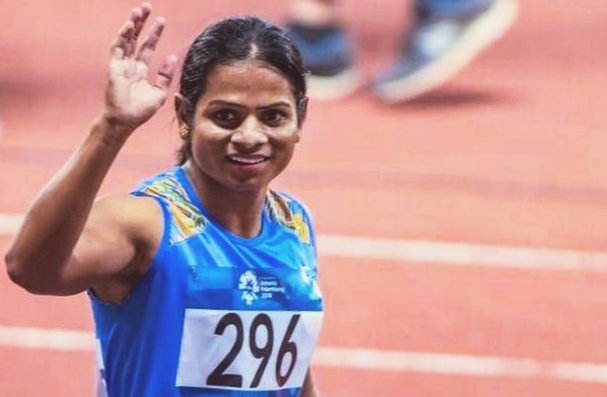Dutee Chand, the renowned Indian sprinter who made headlines as the first Indian athlete to openly acknowledge her same-sex relationship, has voiced her support for the legalization of non-heterosexual marriages in India. In an interview with news agency ANI, Chand revealed that there are numerous individuals like her involved in non-heterosexual relationships in the country, but many of them remain silent due to fear. She emphasized that India should follow the lead of several countries that have recognized same-sex marriages.Chand highlighted the need for security and guidance in every sector of society.
She expressed concern about situations where individuals may require a guardian for medical purposes in their old age, as parents may not always be available. Chand believes that if non-heterosexual marriages are legalized, couples could provide authorization on each other’s behalf, ensuring their rights and responsibilities as partners.The sprinter also reflected on the implications of Section 377, a law that had criminalized consensual same-sex relations in India until it was struck down by the Supreme Court in 2018. Chand mentioned that had Section 377 not been decriminalized, she would have faced the possibility of a criminal case being filed against her.The issue of marriage equality for the LGBTQIA+ community was recently under scrutiny by a five-judge Constitution bench of the Supreme Court, headed by Chief Justice of India DY Chandrachud. During the hearings, the petitioners argued for legal recognition of same-sex marriages under the Special Marriage Act, aiming to provide dignity and social security benefits to their unions.
The government, however, opposed the legalization of same-sex marriages, asserting that the decision should rest with the parliament rather than the court.While several states, including Assam, Andhra Pradesh, and Rajasthan, have opposed the legal recognition of same-sex marriages, others such as Maharashtra, Uttar Pradesh, Manipur, and Sikkim have requested additional time to offer their opinions on the matter.The outcome of the Supreme Court’s judgment is eagerly awaited by those advocating for marriage equality in India, as it holds the potential to pave the way for a more inclusive and equitable society.


